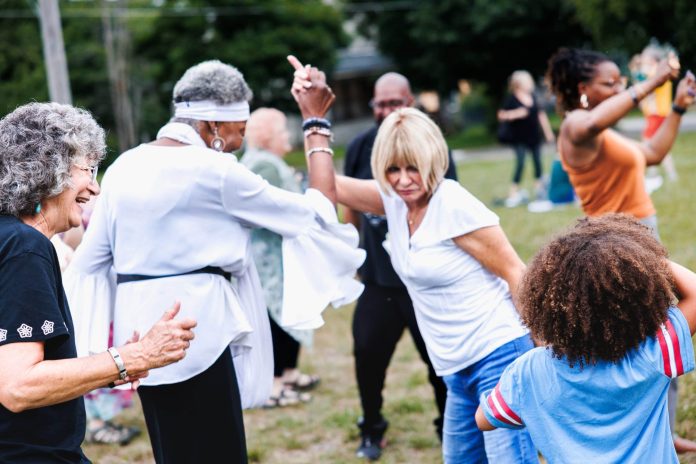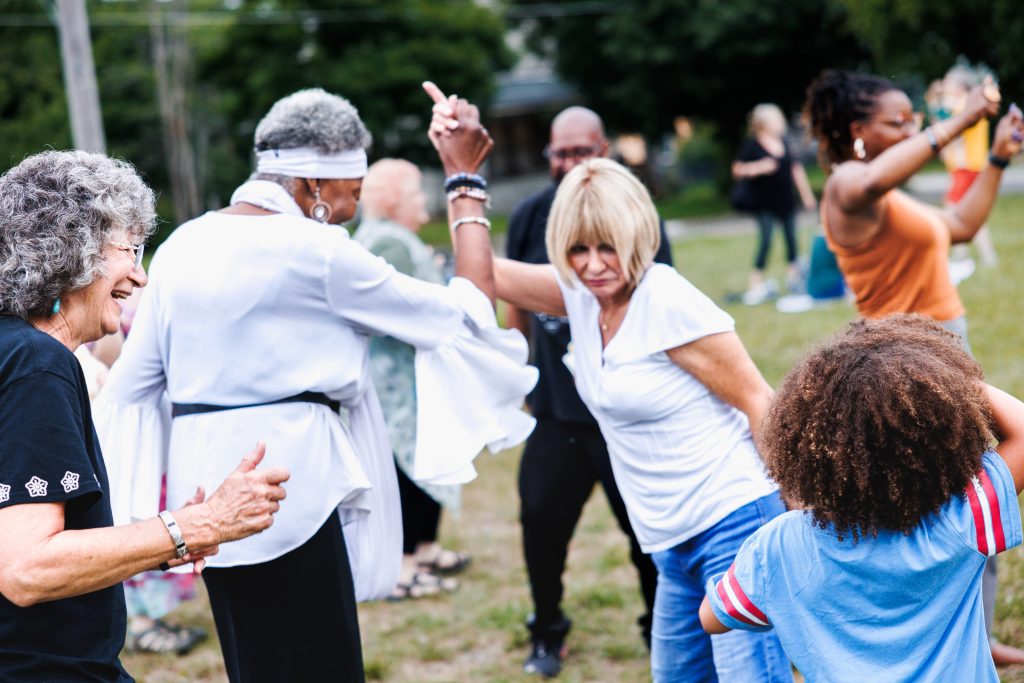
FLINT, Michigan — On a summer evening behind Totem Books, the LowDown Brass Band began to play, filling the air with the sound of horns, creating a lively groove. Kids tossed beanbags in the grass. People lined up at Bella’s Concessions, and lawn chairs stretched toward the bordering streets. It felt like a block party, but it was something more. It showed that the heart of Flint still beat in time with its people.
For three summers, the Levitt AMP Flint Music Series turned this simple space into a gathering place. And the music isn’t stopping anytime soon.
The concert series was part of a national initiative funded by the Mortimer & Mimi Levitt Foundation, a nonprofit dedicated to strengthening communities through free, live music in underused public spaces. The foundation awarded Flint a new three-year grant that will keep the series running through 2028, following a successful first cycle.
“This renewal shows that people believe in what’s happening here,” says Joel Arnold, Planning and Advocacy Manager at Communities First, Inc. (CFI), the nonprofit that manages the series. He said the new grant validated the team’s efforts to make the concert space as welcoming and inclusive as possible.
The 2025 lineup featured acts from across the world: Chicago’s LowDown Brass Band, Radio Free Honduras, The Claudettes, and JJ Sansaverino, Boston’s Coral Moons, Detroit’s Laura Rain & The Caesars, Kommuna Lux from Odesa, Ukraine, and Louisiana’s Curley Taylor & Zydeco Trouble. Each show drew around 200 people, proof that Flint’s love for live music continued to grow.
“Our first priority was to ensure that the great relationships and foundation built in years 1 and 2 by Jazz on Wheels, Totem, and other amazing community partners carried forward,” Arnold says. “Beyond that, we wanted to ensure that every person in Flint, regardless of your age, race, income, musical taste, etc., felt like the concert welcomed them and highlighted something that spoke to them.”
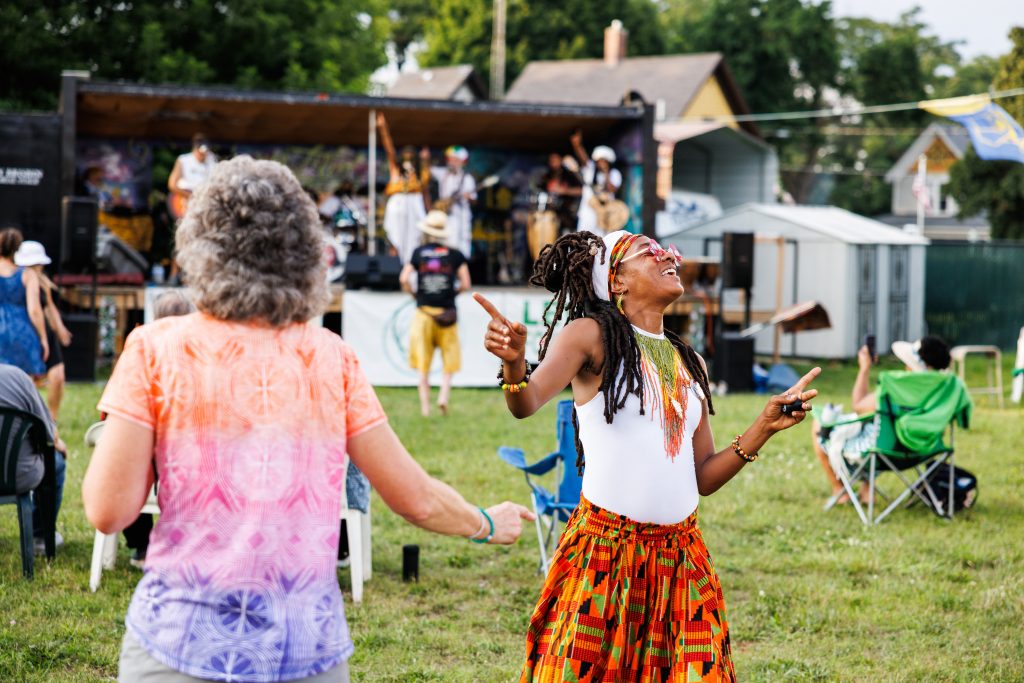
Arnold approached the series as both an organizer and a city planner. For him, these concerts were more than entertainment. They exemplified the profound impact that great design can have on public spaces.
“Great cities are defined by great public spaces,” he says. “In Flint, we’ve not always focused on creating wonderful public spaces, and so with this series it’s been an opportunity to show that with some good design and good programming, even a simple vacant lot behind a bookstore can be a vibrant and exciting public gathering space.”
Working with the Crim Fitness Foundation’s Better Block Flint program, CFI added movable benches, shaded seating, and vendor pergolas to enhance the site’s inviting atmosphere. Its central location helped too, just a short walk from downtown and the MTA transit hub, surrounded by local spots like White Horse Tavern and Great Escape Gaming.
“One thing that makes walkable communities work is a sense of activity and other people being out enjoying public spaces,” Arnold says. “By activating a space like the lot behind Totem, we’ve been able to show how public space in a walkable, accessible location can be warm and inviting.”
Communities First, Inc. also pushed for improvements to Court Street, which runs alongside the venue. “Currently, having a four-lane, one-way road is incredibly dangerous for anyone walking, biking, or taking the bus to get where they need to go,” he explains. “We’ve been active in advocating to the Michigan Department of Transportation for a quality, pedestrian-friendly design here.”
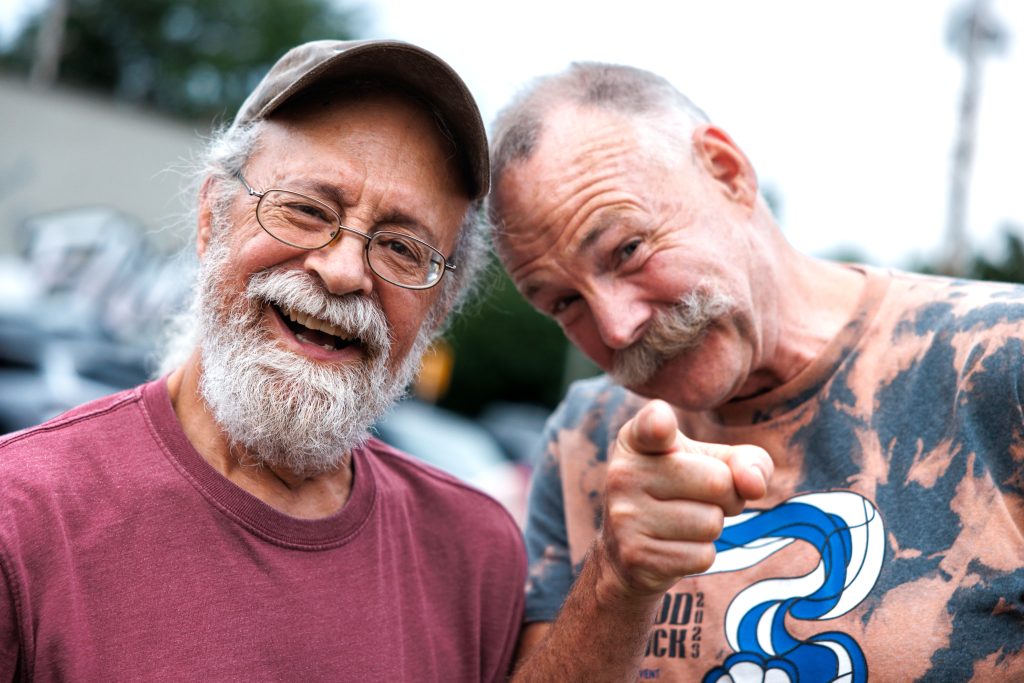
CFI’s experience with large community events made it the perfect choice to manage the Levitt series. With the organization’s outreach and marketing expertise, the series reached a wider audience than ever. The team distributed flyers throughout Flint and Genesee County, boosted social media ads, and collaborated with WNEM Channel 5. They also promoted the concerts through other CFI programs such as Movies Under the Stars and the African American Film Series.
“Almost anything you could think of to broaden the reach of knowledge about this, we did it,” Arnold says. “We also survey attendees who come to the Levitt shows and get their honest feedback. We try to figure out where folks came from, what drew them to the event, what music speaks to them, and then use that feedback to shape future programming. While we love having regular series attendees, we really keep an eye on trying to ensure that at each show we see new faces we’ve never seen before.”
Flint’s focus on inclusion sets it apart from other Levitt cities. This was one reason the foundation renewed its support.
For Arnold, the series linked two of his lifelong passions: music and community planning. A trombone player since fifth grade, he spent four years in the Spartan Marching Band at Michigan State University and performed with community groups across the United States and abroad.
“Music is a huge part of my life and has given me amazing experiences,” he says. “It’s also something that can be completely different than my daily work in policy or community development, or advocacy. Bringing those two worlds together has been really rewarding.”
He remembered the final show of the summer vividly. As Curley Taylor & Zydeco Trouble played under the September sky, the sun dipped below the trees, and the crowd kept dancing long after dark.
“It was great to see that kind of community be built in this space,” Arnold says. “It really showed how great live music in free public spaces can bring people together.”
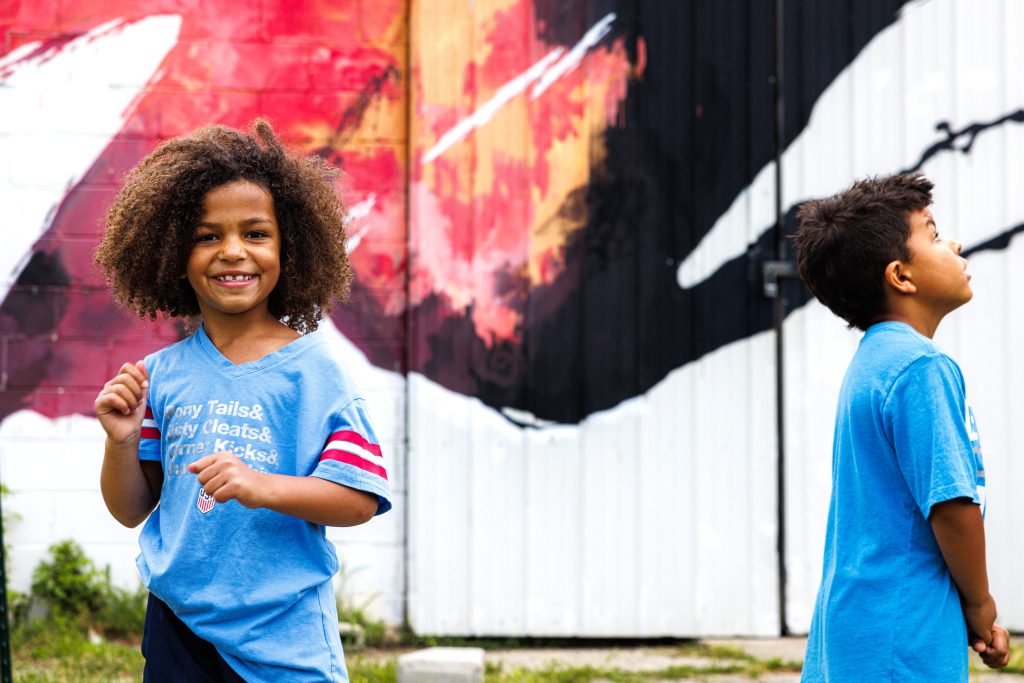
With funding secured through 2028, CFI planned to keep growing the Levitt AMP Flint experience. Arnold hoped to see more local vendors, food trucks, and community organizations participate, while also bringing in more international performers.
CFI continued its broader arts work, too, including the restoration of the Flint Masonic Temple into a performance venue.
“A successful public space is one that doesn’t need an event to happen for people to want to use it,” Arnold explains. “The best parks or plazas or public spaces are those that are busy with people just living their daily lives, reading a book or taking a walk, cutting through on their way to work, or hanging out with friends. What attracts people most, it would appear, is other people.”
Three years after it began, the Levitt AMP Flint Music Series had done more than bring great music to downtown Flint. It showed what was possible when a community took ownership of its spaces. With a new grant in place, Flint’s summer soundtrack would keep playing for years to come.

